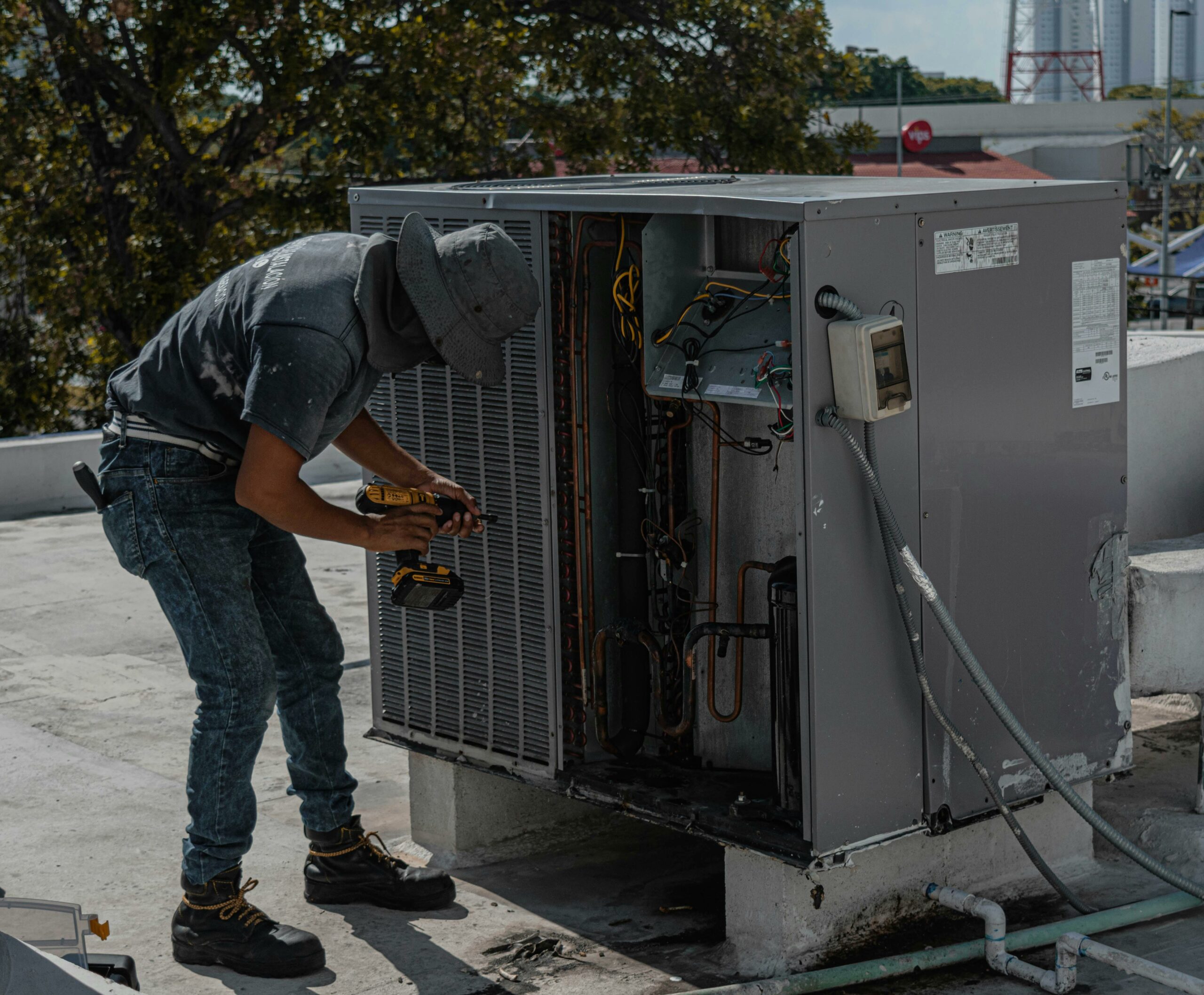Common Causes of Emergency HVAC Failures in Commercial Buildings

You’re working at your business, and just like that, your heat or air conditioning stops working. It’s not a power failure. You have no idea what caused it. Emergency HVAC failures are common, unfortunately, and that’s why many business owners call a company like Fusion Repair. In this article, we’ll touch upon some of the reasons why they happen.
Overview of Emergency HVAC Failures
Emergency HVAC failures aren’t just one thing. They are a range of problems that can disrupt air conditioning, heating, and ventilation systems. They can cause safety hazards, significant damage, and discomfort.
Common Causes of Emergency HVAC Failures
There are a variety of reasons why they happen, including:
- No maintenance
- Electrical problems
- Leaking refrigerant
- Component malfunctions
- Extreme weather
- And others
We’re going to touch upon some of these HVAC emergency causes so you’re familiar with them.
Lack of Regular Maintenance
A very common and avoidable cause of failure is not having the system maintained regularly. Regular maintenance can catch small problems before they become big ones and help you save money and time. If you’re looking for a company that can maintain your system in New York, click here.
Electrical Issues
Another common problem that can cause HVAC failure is electrical problems. These are things such as:
- A tripped circuit breaker
- Blown fuses
- Capacitor failures
- Faulty wiring
- Thermostat malfunctions
Refrigerant Leaks
You may have leaking refrigerant because there is damage in the lines, due to corrosion, or because of improper installation. When the refrigerant is leaking, its levels become low. Therefore, your system is working harder to cool your building and your compressor may fail.
Mechanical Wear and Tear
The parts in your HVAC system will wear out as time goes by. The moving parts in your HVAC system, such as belts, motors, and bearings, will wear out and they’ll need to be replaced.
Extreme Weather Conditions
Many times, when your system is working overtime during very cold or very hot weather, it just says it’s hard enough. When it’s pushed to the limit, your system can’t work anymore and it breaks down and fails.
Improper System Installation
Imagine you are the only employee in a 5,000 square foot warehouse. You have to do the work that 200 employees should be doing. You’re working day and night without any help. You’d get pretty exhausted. That’s how a too-small HVAC system feels when it’s working for a huge building. If you have a large building but you have a small system, it’s working and doing the work of 2 or 3 systems. Eventually, it will break down.
The Cost of Ignoring These Issues
When you ignore these problems, you’ll find that you have more problems than you know what to do with.
- Expensive Repairs or Replacement – When you ignore the problems, your system will break down, and it will need to be repaired or replaced. This can get expensive.
- Health Issues – Ignoring problems with your HVAC can cause you and your employees to have health issues like respiratory problems and headaches.
- Low Employee Retention – When employees aren’t happy where they are working because they are uncomfortable, they may call out sick or quit.
- Unhappy Customers – Customers want to go where they are comfortable. If your business isn’t comfortable, they will avoid it.
These are just some of the things that can happen when you don’t have a functional HVAC system in your building.
Preventive Measures to Avoid Emergency Failures
If you want to avoid sudden commercial HVAC breakdowns, there are three main things you have to do.
- Keep Up Maintenance – Make sure you’re maintaining your system. This means changing the filters, having it inspected, and listening to cues that something is wrong.
- Ask for Feedback – Ask your employees if they have noticed anything strange in the building, such as odd smells or sounds. Also, check for areas that are especially hot or cold.
- Get the Right System – When you’re getting a new system, make sure it’s the right size for your business’s needs. Otherwise, you’ll discover that you’re back at the start.
These tips may seem simple. But they can make a huge difference in how your system runs and how well it works for your company. Think about the hot summers and cold winters we have in New York. Then think about how it will feel without a functional system. Isn’t taking the proper precautions worth it to keep your system and your business running comfortably for you and your employees?
In Conclusion
Most emergency HVAC failures can be avoided. Some, like those due to extreme weather, aren’t avoidable. But that’s why it’s a good idea to have your system checked before the hottest and coldest months. Now you know some of the common causes of HVAC emergencies and what you can do to avoid them.
Miss Clipping Out Stories to Save for Later?
Click the Purchase Story button below to order a print of this story. We will print it for you on matte photo paper to keep forever.

